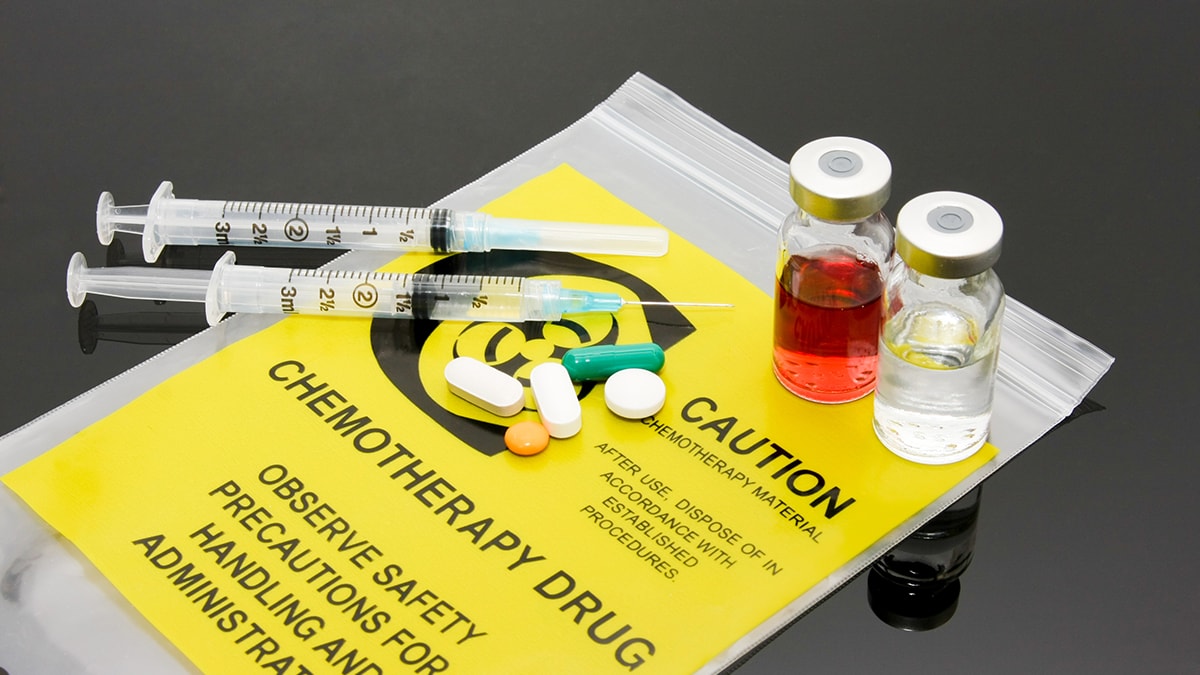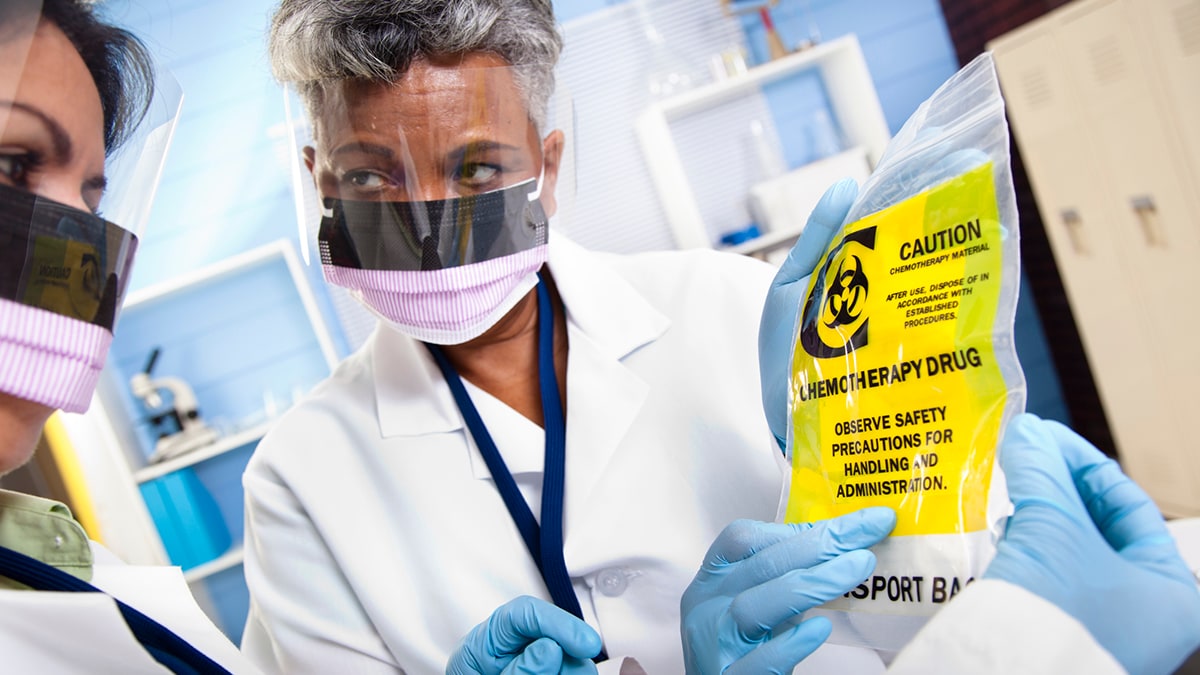Key points
- People who work with antineoplastic (chemotherapy) drugs may have an increased risk of miscarriage or birth defects during pregnancy.
- We do not know what levels of antineoplastic drugs are safe.
- Limit your exposure to antineoplastic drugs as much as possible.

Understanding antineoplastic drugs
Antineoplastic drugs are medications used to treat cancer. Other names for antineoplastic drugs are anticancer, chemotherapy, chemo, cytotoxic, or hazardous drugs.
These drugs come in many forms, including liquids or pills.
Why I should be concerned about exposure
Cancer patients who are taking antineoplastic drugs have an increased risk of infertility. Treatment during pregnancy may increase the risk of miscarriage or birth defects.

People who work with antineoplastic drugs may have an increased risk of infertility, miscarriage, or birth defects.
Many antineoplastic drugs work by targeting and killing rapidly dividing cancerous cells. They can also be harmful to healthy dividing cells, including the cells of a developing baby.
Who is at risk
Workers who transport, prepare, or administer antineoplastic drugs may be exposed to these drugs. Workers who care for patients who have antineoplastic drugs in their bodies may also be exposed to these drugs. This could include:
- Pharmacists or pharmacy technicians
- Nurses who prepare and/or administer antineoplastic drugs
- Doctors and operating room workers
- Shipping/receiving, custodial, and laundry staff in health centers
- Animal care workers handling animals receiving antineoplastic drugs
What I can do to reduce or eliminate exposure
Eliminate or reduce exposure by following guidance in the NIOSH Alert on antineoplastic drugs. Share this NIOSH Alert with your employer.
Resources
Getting help
Talk to your supervisor or occupational safety officer. You can ask them about avoiding duties that may expose you to antineoplastic drugs on a temporary basis during pregnancy.
For information on the Pregnant Workers Fairness Act, please see resources from the U.S. Equal Employment Opportunity Commission (EEOC) website.
Talk to your doctor about potential hazards at work. Make sure to mention that your job exposes you to antineoplastic drugs.
Where I can get more information
- Learn more about hazardous drug exposures in healthcare
- Learn more about antineoplastic agents in healthcare
